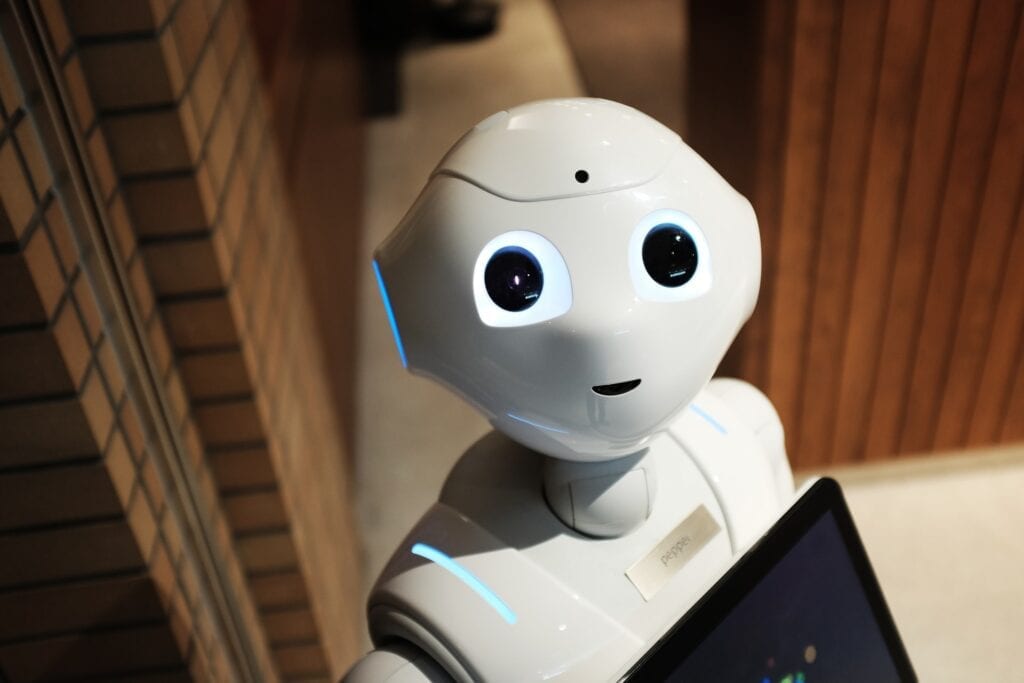Companies prefer to hire specialists. You can trace the reasons for this back to The Wealth of Nations, the pioneering work of Adam Smith that remade the world of economics when it was released in 1776.
In Smith’s work he introduced the concept of division of labor — one of the greatest ideas in the history of economics.
From division of labor grew specialization — the idea that we would each train hard in a very specific set of skills that would last us our entire careers.
Clearly, Specialization has many advantages as well. If you spend 40+ hours per week for decades mastering a trade, only other specialists will ever be able to match your ability with that skill. Polymaths and generalists can’t hope to compete.
But this article isn’t about human competition. It’s about machines, and you can’t outspecialize a machine.
I Was Built That Way
For centuries, the word computer referred to a person that performed manual mathematical computations. Care to guess what device replaced them?
Farmers, factory workers, tax accountants, travel agents, and several other fields have already started to feel the impact of automation. When you need to book a flight, do you pick up the phone or go to Expedia?
None of these fields have entirely disappeared; few fields ever do. But you don’t want to be in a field that is shrinking. You don’t want to have 100% of the competition competing for 90% of the jobs — then 80%, 70%, and so on.
So what can we do? At first glance, it would seem that we need to find jobs that won’t be automated, but this goal is harder than you would think. No field is guaranteed to be safe from automation.
Harder Doesn’t Mean Safer
Some people rush to advanced degrees or complicated training programs. After all, if it takes 4–6 years of postgrad training to even start a job, it can’t possibly be first up on the chopping block, right?
Wrong.
Machines don’t think the way that we do. Some of the things that are hardest for us to do are actually quite easy for machines.
Compare doctors and nurses. I’ll let those in the medical field decide which one is actually the harder job, but let’s focus on the training time for now. Being a human doctor requires more years of training than being a human nurse.
Diagnosis, surgery, and many other tasks that doctors do are already seeing some level of automation. One of the biggest things doctors have going for them is the vast amount of knowledge that they carry and their ability to quickly expand that knowledge when needed — things that machines are also very good at.
Nurses, on the other hand, have jobs that involve a lot of direct patient interaction and empathy — tasks that would be harder (but not impossible) to automate.
How hard it was to train for your job is not a good indicator of how hard it would be to automate. A better indicator is the necessity of soft skills, creativity, and the like. But even that is not enough.
Machines Get Partial Credit
To make matters worse, machines don’t have to do every task in a field to wipe out jobs. If 10% of the tasks that a doctor does are suddenly automated, you can bet that the number of jobs available for doctors will go down substantially.
People tend to focus on the parts of their jobs that they claim are hardest to automate when they talk about their future job safety. Even if they have properly identified the aspects that can’t be automated, it means very little if the other 90% of their job goes away.
Nearly every job involves aspects that are automatable. I’m a writer. You’d think that the creative aspect of that would make it hard to replace me. It won’t.
I know that I spend quite a bit of time doing research, editing, SEO, and other tasks that a machine could take away from me. I wouldn’t hate losing some of those, but if each writer can spend more time writing we would need fewer writers. The law of supply and demand always catch up with you.
Value Matters
The more valuable a field, the more somebody will want to automate it. Since the most specialized jobs tend to pay the most, this should scare specialists quite a bit.
Highly-paid specialists that lose their jobs to machines will take huge pay cuts. It’s inevitable. Your pay was based on the value of your specialization, but the value of that specialization also made it very sought after by automators. Now, it’s worth only as much as the cost of the machine that took your place.
The more specialized you are, the more unlikely it is that you will find a replacement career that is valued as highly as the one you have now.
This is Sad. Make It Less Sad
Okay, fine. I’m tired of the gloom, too. Let’s talk about solutions.
No specialization is safe, so safety must be found in a new — or actually very old — pathway: generalization. Division of labor doesn’t require that we all become hyper-specialized. Yet over the past centuries, we have continuously moved toward more and more specialization.
It’s time to bring back the polymath. It’s time to recognize that the only way to stay ahead of the machine is to stay nimble by breaking out of your specialization. You can’t compete with machine learning without human learning.
Polymaths are lifelong learners. We have focused on transferrable skills. Additionally, the skills that make for a successful polymath in the modern era are heavily weighted toward soft skills that are less automatable.
Our jobs are no more immune to automation than those of specialists. We are just ready to jump ship if needed. We have the necessary skills to stay one step ahead of automation.
If automation makes it hard for me to get a job as a writer, I’ll move on. I’ll miss this field, but I’ll find another creative outlet that gives me a similar level of satisfaction. I fear automation, but I find comfort in knowing that it will never trap me.
Final Thoughts
This is not the end of specialists, but it may be the beginning of their decline. Fields that have done nothing but grow for decades or centuries may start to shrink as automation trends onward.
I can’t close this article out without talking about what society needs to do to ease this process.
Specialists and polymaths alike will continue to lose jobs to automation. This is inevitable.
I am not convinced that automation will lead to mass long-term unemployment. At the minimum, though, mass career transfers will become commonplace. Our current societal safety nets cannot handle such events.
Hopefully, society catches up — because automation is not slowing down.
In the meantime, become a lifelong learner. It’s your best way to beat the machines.


